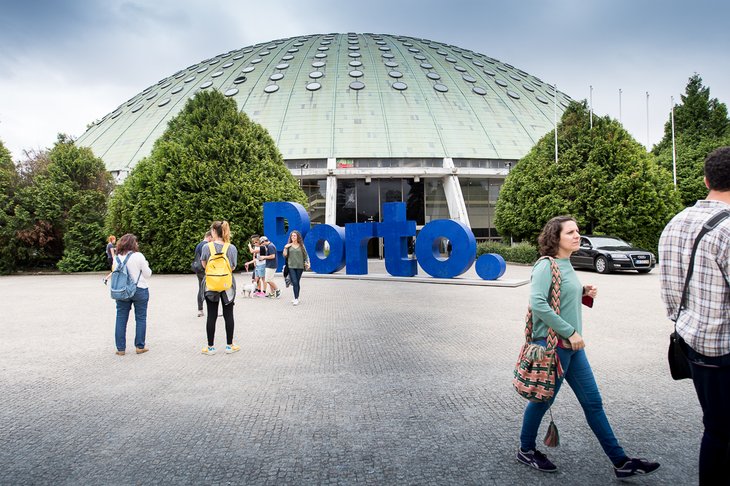Porto hosts debate on sustainable future of European cities
Article

Miguel Nogueira
On 23 and 24 May, the city will host the first edition of the NBS Summit Urban Edition, an event organised by the National Association of Green Roofs (ANCV), with the support of Águas e Energia do Porto, in which a wide range of speakers will share ideas and solutions for making large cities more sustainable, biodiverse and resilient.
Over two days, the Super Bock Arena – Pavilhão Rosa Mota will host the first edition of the NBS Summit Urban Edition – an interdisciplinary platform dedicated to sharing knowledge about Nature-Based Solutions applied to urban territories. Experts, academics and industry leaders will reflect on the main focuses of the European sustainability goals.
Designed to broaden knowledge about cities' green future, the dialogue between experts – focusing on topics such as the conservation of urban ecosystems, green infrastructures, sustainable rainwater management, energy efficiency and renewable energies – will make it possible to unveil the latest technological solutions, bringing to light possibilities that could accelerate progress in the sustainable construction sector in Portugal.
Architect Nuno Brandão Costa – author of the recent Campanhã Intermodal Terminal – and landscape architect Laura Gatti – co-author of the award-winning Milanese building Bosco Verticale stand out in the field of architecture.
The guest panel also includes landscape architect Kongjian Yu, acknowledged for developing the ecological design concept Sponge City (technology that acts as a 'sponge', retaining rainwater instead of draining it), having so far developed more than 600 projects built in around two hundred cities, mainly in the Asian continent.
Online map launch
Among the speakers at the NBS Summit Urban Edition will also be Luigi Petito, a specialist in European public affairs, Martin Košťál, head of department for the Czech city of Brno, and Jürgen Preiss, deputy head of environmental protection of the city of Vienna. The latter two will focus the dialogue on the policies to be implemented in the cities where they work. The aim is to understand how the application of appropriate policies, at regional and national level, allows for a sustainable and integrative environmental transition.
The event's programme will provide participants with access to interactive panel discussions with guests from several sectors, specialised masterclasses and visits to works that highlight the successful implementation of Nature-Based Solutions. And because the NBS Summit will bring together European researchers at the forefront of Nature-Based Solutions, the organisation has launched a call for papers, thus encouraging the presentation and sharing of scientific innovation.
Drawing on this exchange of experiences, the NBS Summit, in partnership with the Municipality of Porto, will launch an online map which aims to highlight emblematic projects that exemplify the successful integration of sustainable solutions into urban infrastructure.
The organised event is open to the general public, subject to prior ticket purchase. More information here.
Green roofs in Porto
Focusing on improving the territory, Porto has endeavoured to become a city at the forefront of urban sustainability, and has therefore been developing and supporting projects to implement Nature-Based Solutions.
An example of the steps taken by the Municipality is the Quinto Alçado do Porto Project, a partnership between the City Council and ANCV – National Association of Green Roofs, with the main objective of defining the model to be followed to include green roofs – natural roofs with plants – in the cityscape.
Through its participation in the LIFE-myBuildingisGreen project, the municipality adopted this type of solution at the Falcão School, in Campanhã. It has 700 square metres of green roofs and façades, as well as photovoltaic panels.
In addition, the city has increasingly embraced urban vegetable gardens, urban forests and ecological corridors, and focused on the rehabilitation of streams.